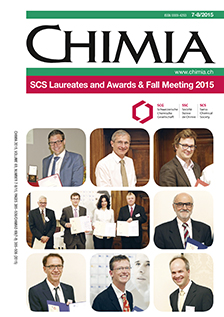Heterogenised Molecular Catalysts for the Reduction of CO2 to Fuels
DOI:
https://doi.org/10.2533/chimia.2015.435Keywords:
Catalysis, Co2 reduction, Electrocatalysis, Heterogeneous, PhotocatalysisAbstract
CO2 conversion provides a possible solution to curtail the growing CO2 levels in our atmosphere and reduce dependence on fossil fuels. To this end, it is essential to develop efficient catalysts for the reduction of CO2. The structure and activity of molecular CO2 reduction catalysts can be tuned and they offer good selectivity with reasonable stability. Heterogenisation of these molecules reduces solvent restrictions, facilitates recyclability and can dramatically improve activity by preventing catalyst inactivation and perturbing the kinetics of intermediates. The nature and morphology of the solid-state material upon which the catalyst is immobilised can significantly influence the activity of the hybrid assembly. Although work in this area began forty years ago, it has only drawn substantial attention in recent years. This review article gives an overview of the historical development of the field.Downloads
Published
2015-08-19
Issue
Section
Scientific Articles
License
Copyright (c) 2015 Swiss Chemical Society

This work is licensed under a Creative Commons Attribution-NonCommercial 4.0 International License.
How to Cite
[1]
C. D. Windle, E. Reisner, Chimia 2015, 69, 435, DOI: 10.2533/chimia.2015.435.







